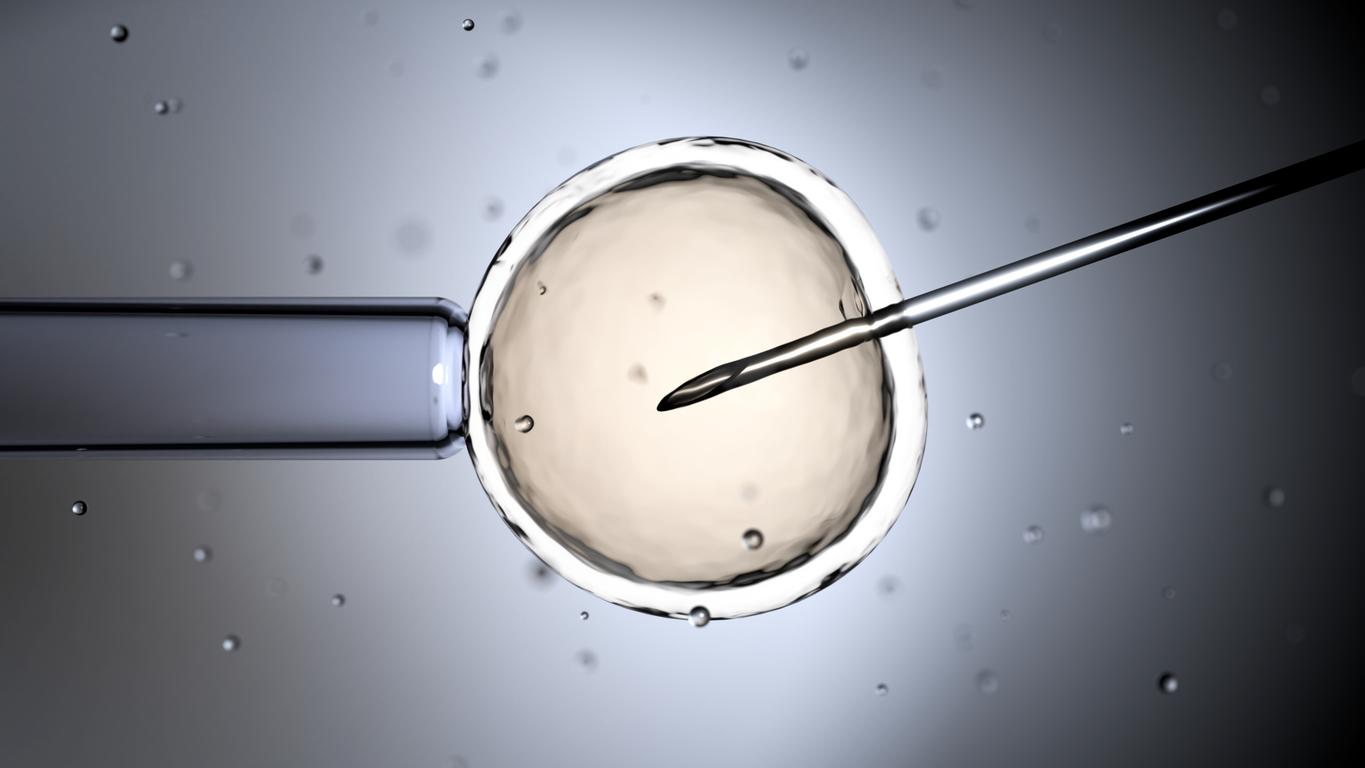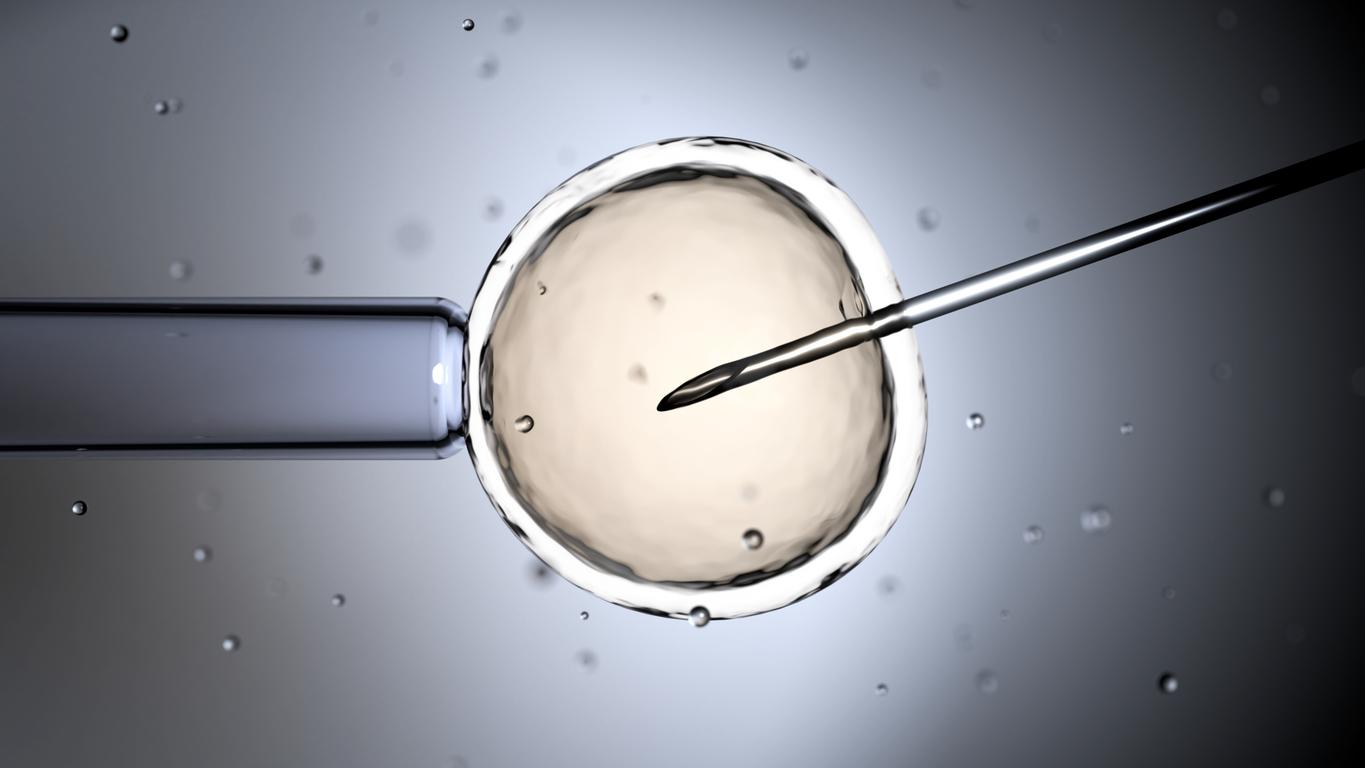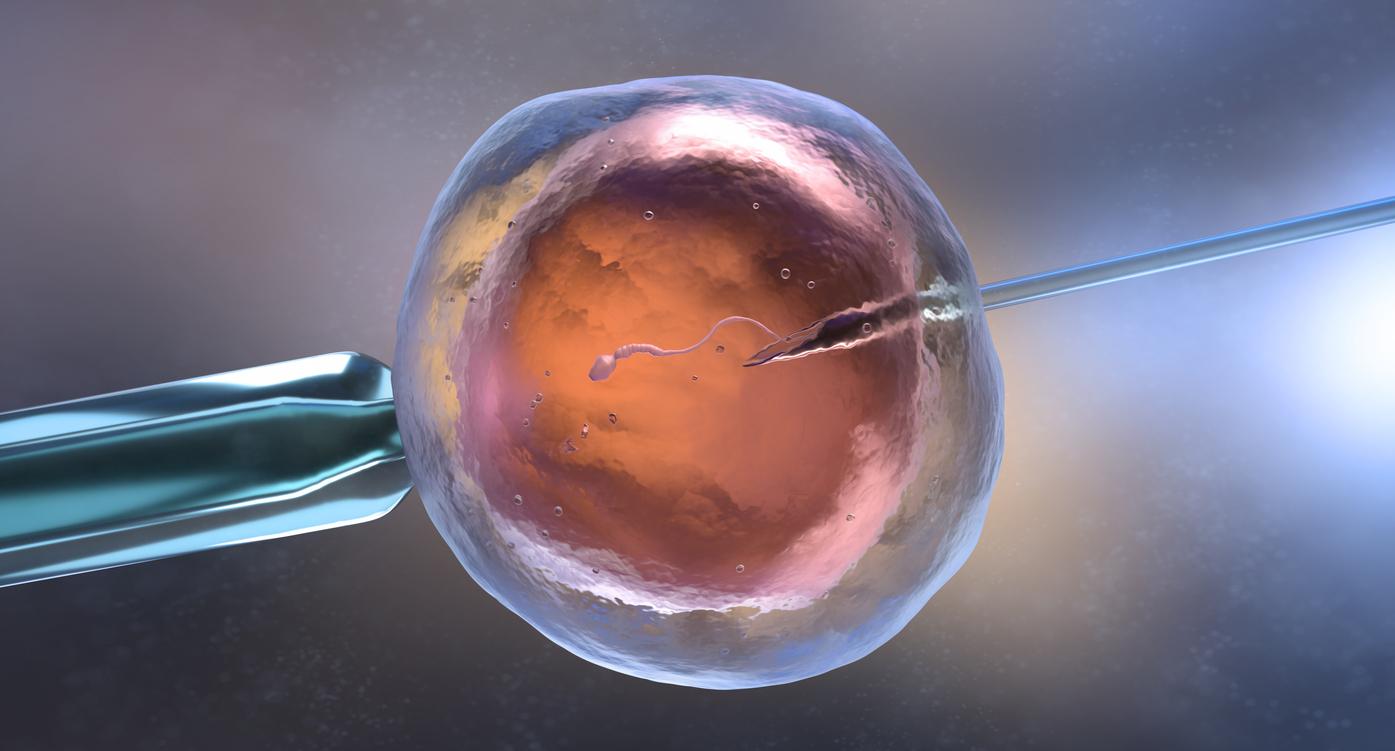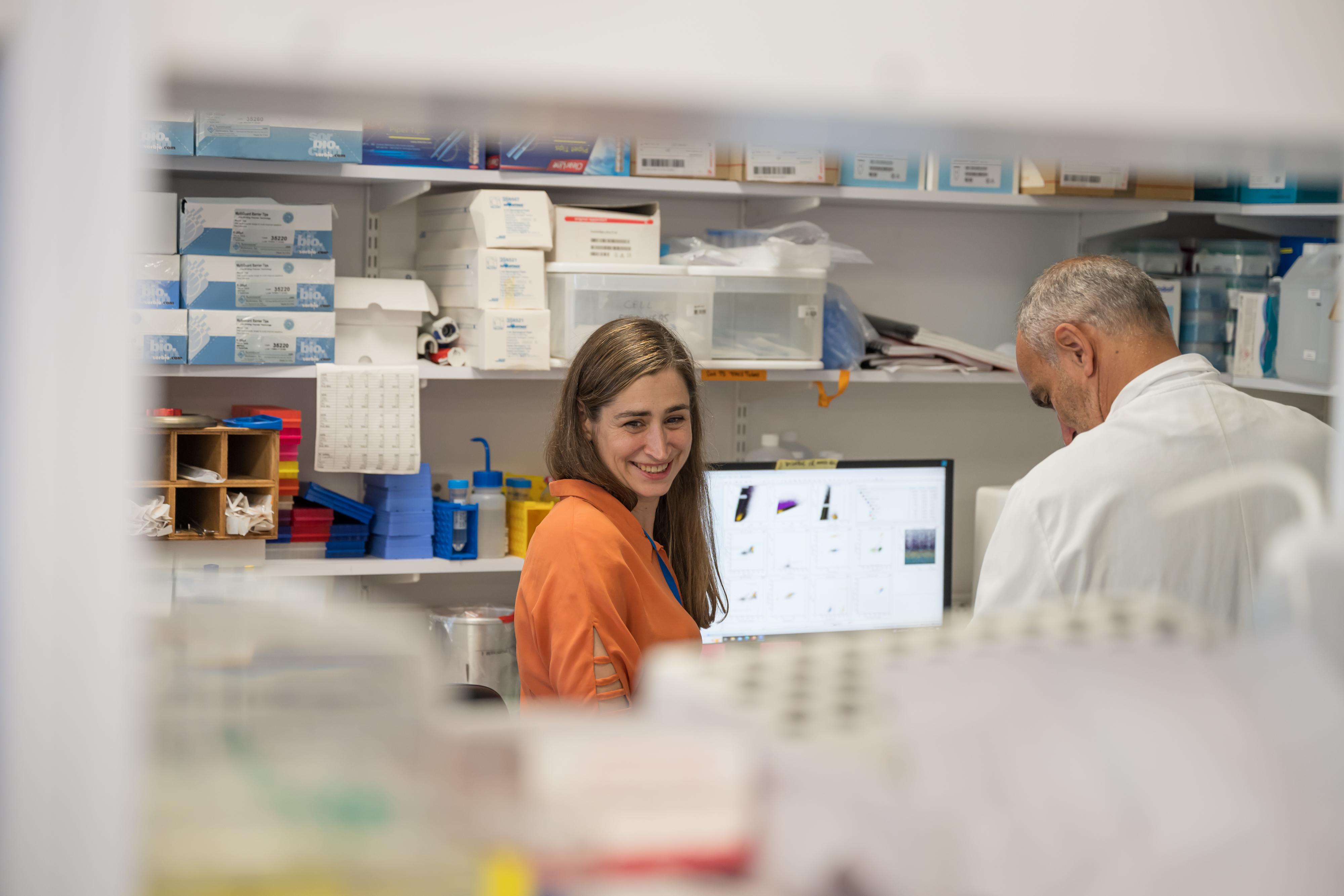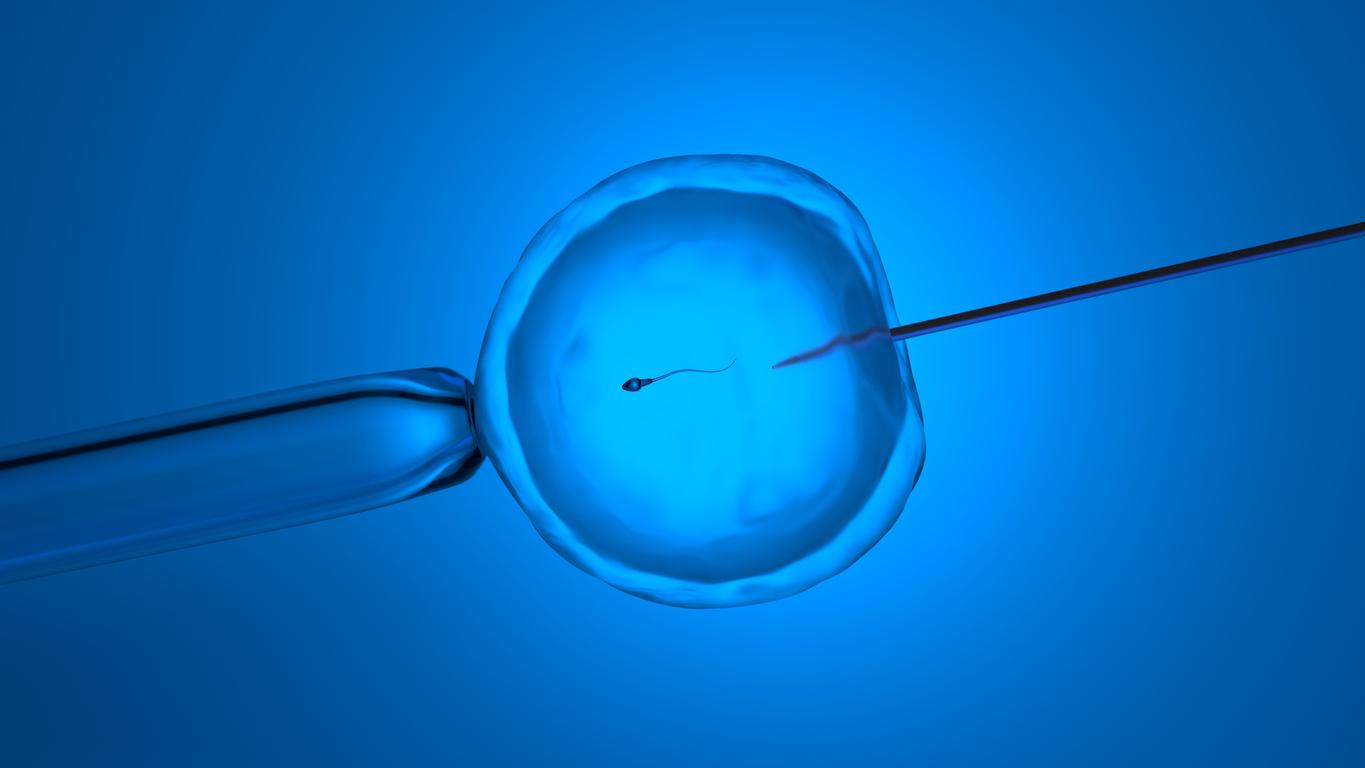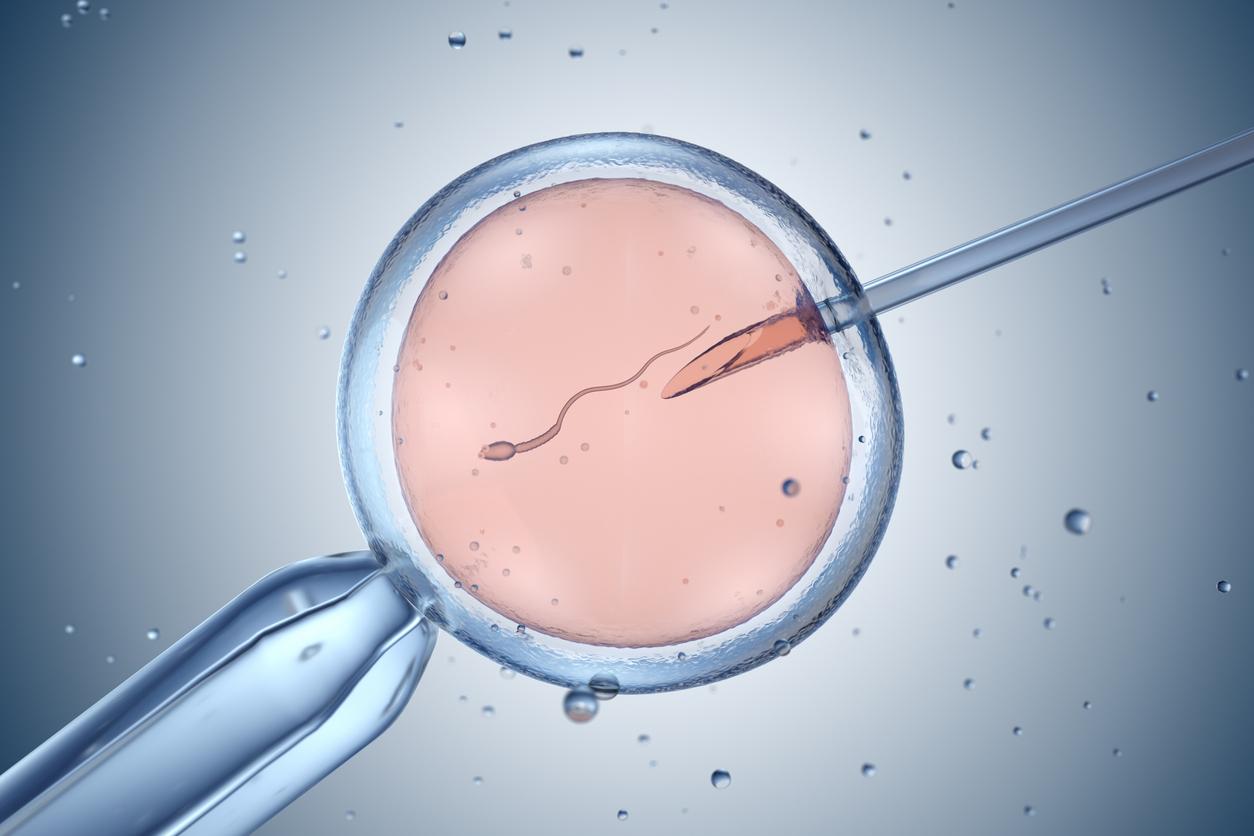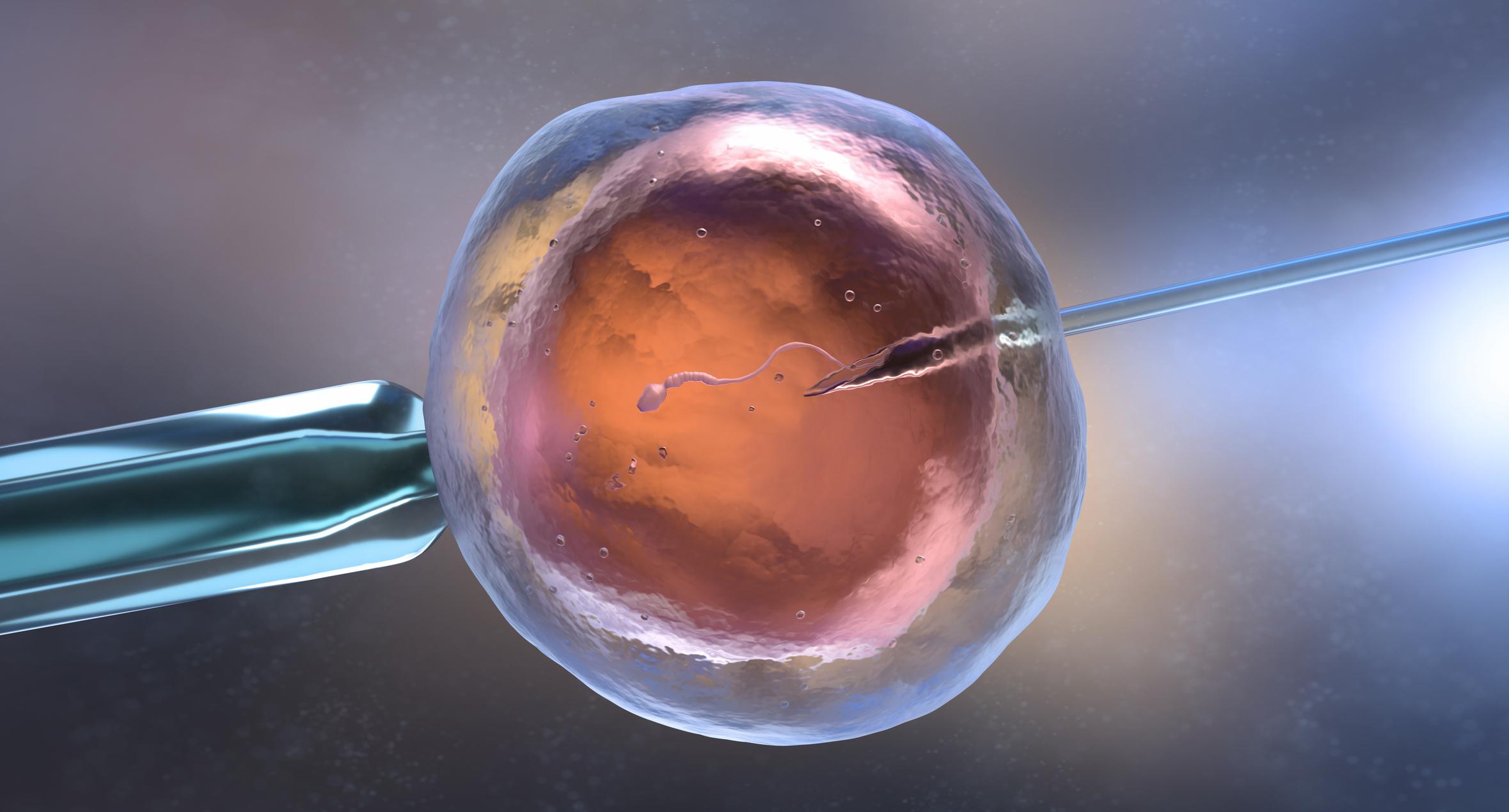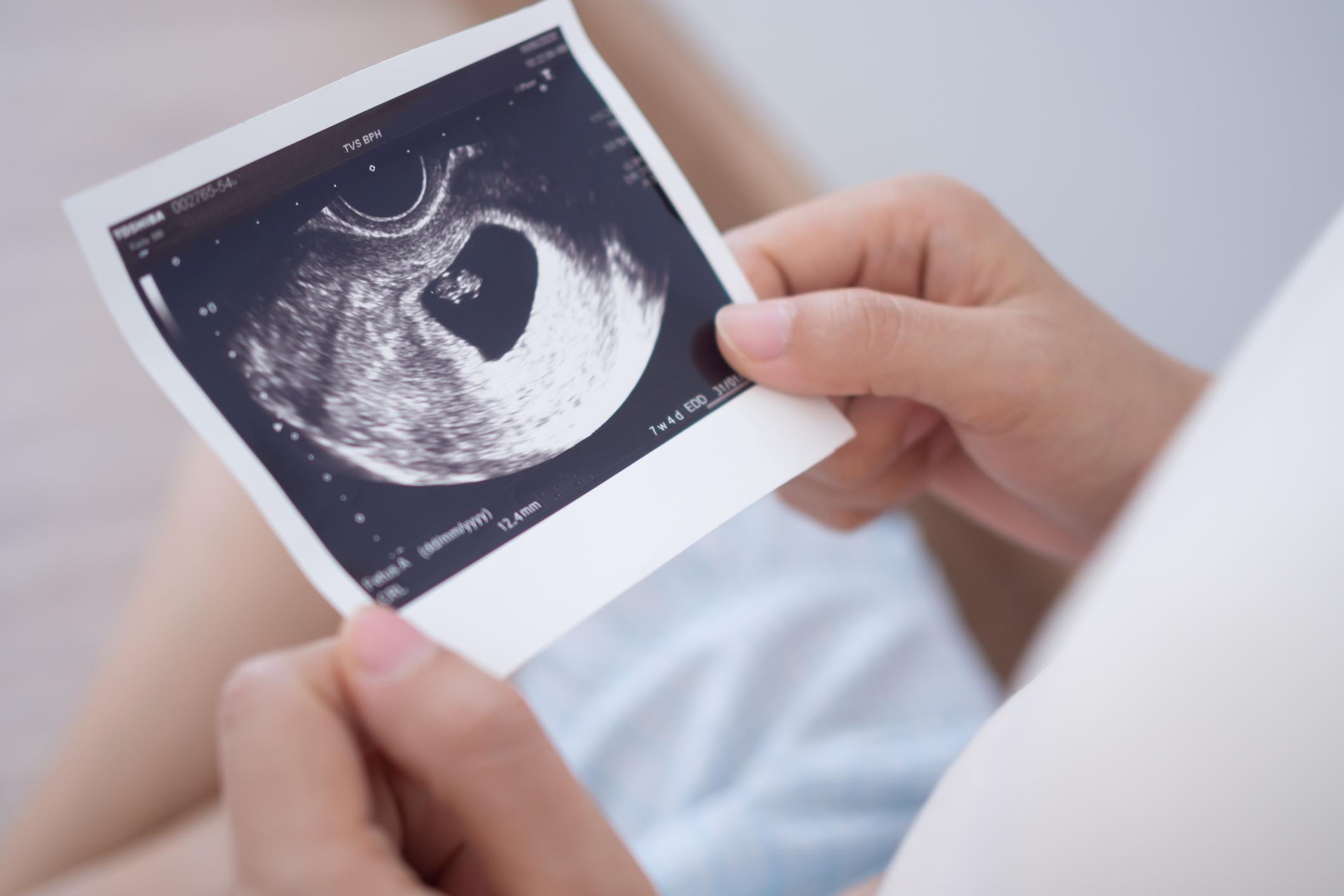In vitro fertilization (IVF) may not be successful for various reasons. American researchers have recently developed an algorithm that would identify embryos with a chromosomal abnormality.

- In France, the first baby conceived by in vitro fertilization was born on February 24, 1982.
- Since August 2, 2021, in vitro fertilization has been accessible to single women, female couples and heterosexual couples.
In vitro fertilization (IVF) is a technique of Assisted Medical Procreation (ART). This method consists of reproducing fertilization and the first stages of embryonic development in the laboratory.
Aneuploidy is characterized by a cell that does not have the normal number of chromosomes, which is 46 chromosomes. This anomaly is one of the main causes responsible for IVF failure (miscarriage, non-implantation of embryos, etc.). Currently, the diagnosis of aneuploidy is based on an embryo biopsy which consists of removing one or two cells from the embryo for genetic analysis. But this approach increases the cost of the IVF process and is invasive for the embryo.
Artificial intelligence to detect chromosomal abnormalities
Researchers from Weill Cornell Medicine in New York (United States) recently developed a STORK-A algorithm that can detect aneuploidy without resorting to a biopsy. Artificial intelligence makes it possible to observe whether a fertilized embryo has a normal or abnormal number of chromosomes with an accuracy of 70%. The results of this work have been published in the scientific journal The Lancet Digital Health.
The STORK-A algorithm analyzes microscopic images of the embryo taken five days after fertilization while integrating the age of the mother and other information collected during the IVF process. Thanks to artificial intelligence, the algorithm automatically “learns” to correlate certain characteristics of the data, often too subtle for the human eye, with the risk of aneuploidy.
STORK-A algorithm: less risky IVF
As part of its development, the STORK-A algorithm examined 10,378 blastocysts which correspond to embryos five to six days after fertilization. The research team knew the chromosomal statuses of the embryos studied during this phase of formation. The scientists then evaluated the algorithm on independent data from different institutions, including an in vitro fertilization clinic in Spain. They also obtained excellent results in terms of the accuracy of the analyzes of the STORK-A algorithm.
“This is a very good example of how artificial intelligence has the potential to transform medicine. The algorithm transforms tens of thousands of embryo images into artificial intelligence models that can ultimately be used to help improve the efficiency of IVF and further democratize its access by reducing costs”noted Dr. Olivier Elemento, co-author of the study and professor of physiology and biophysics and computational genomics in computational biomedicine at Weill Cornell Medicine.
The STORK-A algorithm is currently at the experimental stage. Additional clinical trials and Food and Drug Administration approval are needed before it goes on the market, but this technological advancement could help with the accuracy of IVF, reduce the costs of the procedure as well as the risks.









